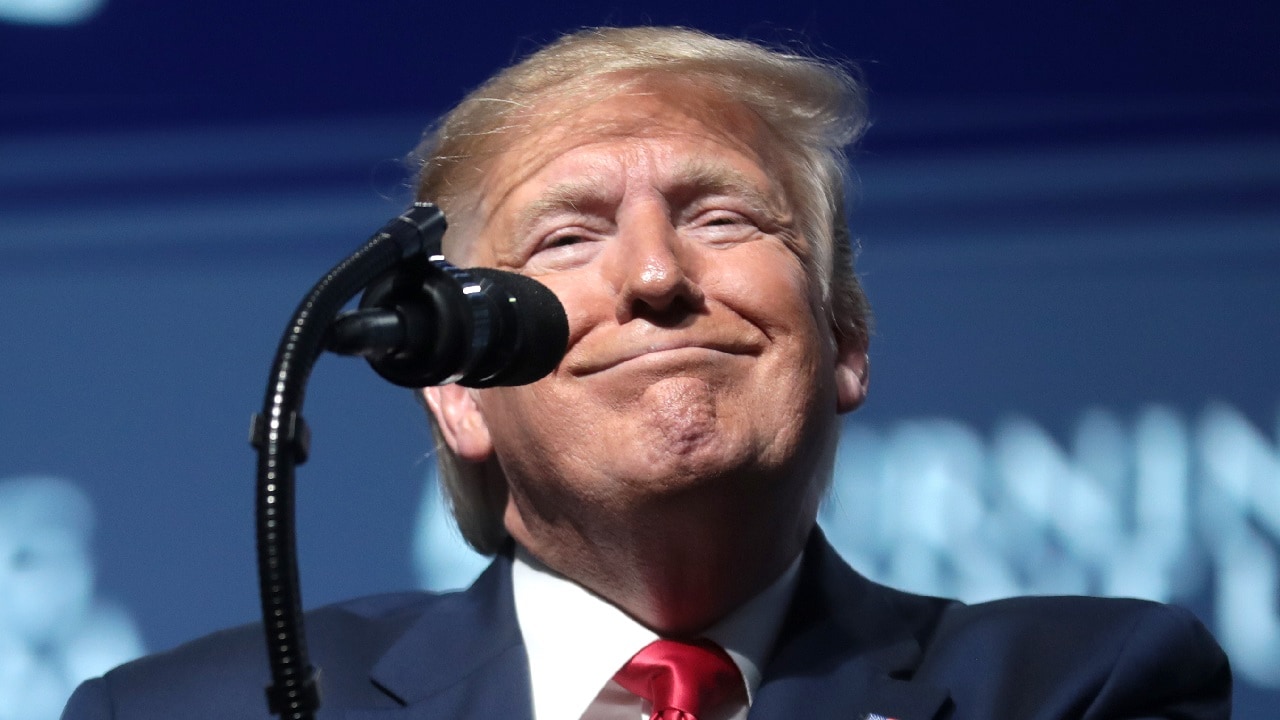US President Donald Trump’s foreign policy has been hugely controversial. In the first month, he has chided and even threatened US friends and allies. He seems particularly determined to upset US partners in North America – a bizarre development no one anticipated.
Trump has talked up annexing Canada and Greenland. He has hinted at attacking Mexico over the drug trade. He suggested the US might snatch the Panama Canal from Panama.
The response has been predictable. At a recent US-Canada hockey game, Canadians booed the singing of the US national anthem and fights between the players broke out immediately.
Trump seems to thrive on disruption – even for its own sake.
It is not clear why else Trump has staked out these rather extreme position. Canada, for example, will obviously not join the US unless it is coerced. The US has not had war plans against Canada in almost a century, and it would be shocking if the US public supported an invasion of Canada.
It would create an insurgency right on America’s border and destroy allied trust in the US overnight. The whole idea is so fantastical that one wonders why Trump keeps mentioning it.
These early comments portend an erratic course for Trump’s foreign policy. On Ukraine, for example, it is a good bet that Trump will swerve repeatedly.
He clearly has a personal fondness for Vladimir Putin, but he will also not wish to be blamed for Ukraine’s destruction. His predecessor – Joe Biden – never recovered in the polls from the perception that he ‘lost’ Afghanistan in 2021.
But there is one area, ironically, where Trump’s disruption-for-its-own-sake may help US foreign policy – the long-running US effort to get its allies to spend more on defense and develop better, more capable, more deployable militaries.
The Allied Free-Riding Debate
American presidents and secretaries of defense have famously complained for decades that US allies do not spend enough on defense. For years, American pundits have suggested that US allies treat the country as ‘Uncle Sucker’ – always willing to pay more for defense while allies cut their own defense spending.
The best known measure of this claim is the NATO exhortation that its members spend 2% of their gross domestic product on defense. Many members have not met that benchmark for a long time.
Over time, this has resulted in European militaries which often cannot deploy far from their shores without US infrastructural and logistical support. In the 2011 Libyan war, for example, Britain and France pushed to intervene, but after a brief run of air sorties, they could not maintain their operational tempo without US support.
Ostensibly, Germany – one of the worst European free-riders – had a revelation that it must step up after Russia invaded Ukraine. Little came of that.
In east Asia, the problem is a little better. America’s South Korean ally has spent well-above 2% for most of its history. It can fight and defeat North Korean conventionally without US assistance. But Japan, like those European allies, has been woefully deficient – although it, like Germany, is now signaling a build-up.
Trump is Obsessed with the US being ‘Ripped Off’
Other US presidents in the last twenty-five years – George Bush, Barack Obama, and Joe Biden – could not cajole these allies to credibly commit to greater spending. These presidents and their staffs were committed liberal internationalists.
They genuinely believed in multilateral institutions and US alliances. So their threats at allies were not credible; NATO states did not believe the US would walk away.
By contrast, Trump’s threats are credible. He does like international organizations or US allies much. His instinct is to withdraw the US from these bodies.
Trump deeply believes that the US is being ‘ripped off’ by its allies and trade partners. This is why he so vigorously supports tariffs. It is also why he keeps telling US allies to spend way more on defense. Unlike in his first term, his foreign policy team this time around agrees with him.

President of the United States Donald Trump speaking with attendees at the 2019 Student Action Summit hosted by Turning Point USA at the Palm Beach County Convention Center in West Palm Beach, Florida.
There is a wide consensus in academic international relations that alliances are good for states. They allow a country to project power more easily and provide support in a conflict. So previous US abandonment threats were often not credible.
However, Trump prefers disruption and rejects the US foreign policy consensus.
Partial abandonment of allies will do a lot of damage as a result, but a silver lining outcome will be likely be that they finally spend more.
About the Author: Dr. Robert E. Kelly
Dr. Robert E. Kelly is a professor of political science at Pusan National University. Kelly is also a 19FortyFive Contributing Editor. You can find him on X: @Robert_E_Kelly.

